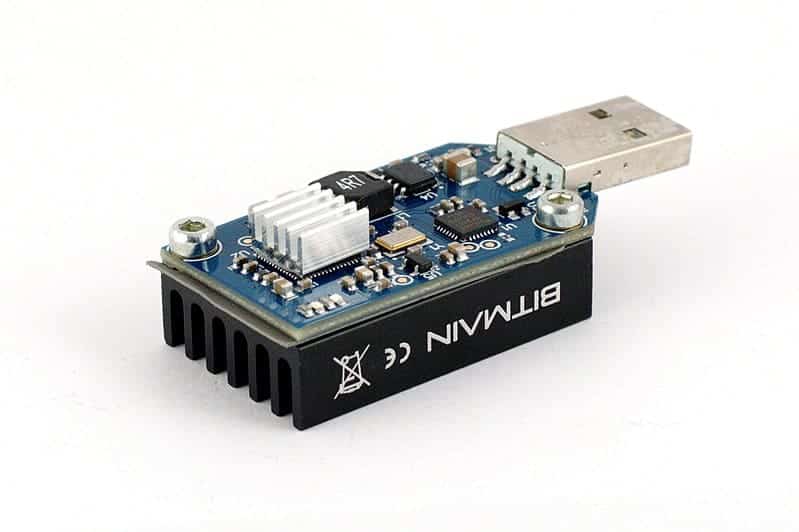In this issue
- Bitcoin and Black Lives Matter
- Brave’s secret referrals
- Coinbase makes a deal with IRS and DEA
- In China: Game of Thrones at Bitmain. New dark clouds over crypto?
- VC highlights in Japan and Malaysia
From the Editor’s Desk
Dear Reader,
What a week it has been. One thing is clear, the voice of the community cannot be ignored. And in the world of blockchain and cryptocurrency, the community is making its value known and vice versa. What is becoming abundantly clear, is that decentralized protocols are for the people. In true democratic fashion, it represents the will and interests of the Everyman and Everywoman, regardless of color and of every color. In its best form, it can represent the majority of voices who believe in equality, justice and support for our fellow humans — regardless of race, religion and gender. Blockchain and cryptocurrency have the potential to return economic power back to the individual. That, in and of itself, is the most powerful draw of a parallel system.
From the calls to adopt bitcoin in the name of Black Lives Matter, to the community digging into the crypto-powered “privacy-first” web browser Brave’s GitHub to reveal referral links that redirect users to affiliate partners, and calls to #DeleteCoinbase in response to news that the DEA and IRS want to purchase licenses to use Coinbase Analytics, political dynamics and ideologies are an integral part of this community.
It’s a movement that is being televised, recorded and viewed in real time. Public discourse needs to include everyone. We’re all paying attention.
Until the next time,
Angie Lau,
Founder and Editor-in-Chief
1. Bitcoin and Black Lives Matter

By the numbers: Bitcoin and Black America — over 5,000% increase in Google search volume.
Closing in on a year since its publication, author and crypto podcast host Isaiah Jackson’s Bitcoin & Black America finds relevance amid global protests triggered by the death of George Floyd. Over the week, Jackson has been featured in podcasts and media interviews as he shared how the black community can use bitcoin as “peaceful protest” against a financial system that for long has excluded and exploited them.
- Black Lives Matter protests in the United States featured signs urging fellow protestors to “Google: Bitcoin & Black America by Isaiah Jackson.” It’s not known if these are a guerrilla marketing ploy, or a legitimate manifestation of grassroots support for Jackson’s self-published book.
- Jackson advocates the idea of bitcoin being a driving factor in the “black economy,” where goods and value produced by the black community stay within the community.
Forkast.Insights | What does it mean?
Isiah Jackson’s thesis about using bitcoin as a medium of exchange within black communities has one flaw: the retail use of bitcoin has been tried many times before, and interest just isn’t there. Merchants that do accept bitcoin use payment processors that charge high fees to convert it back to fiat.
According to a recent report from Chainalysis, retail volume from crypto just doesn’t exist. The only “retail” volume is coming from Darknet markets that hawk drugs and other illicit goods. Cryptocurrency is obviously the only way to go for these establishments. In contrast, Visa easily clears $2 trillion a quarter in transaction volume, while Coinbase Commerce only does $100 million a year.
The censorship-resistant and anonymous aspects of cryptocurrency have long been touted as huge advantages for protest movements that need funding, but are shut out from the traditional financial system. But when push comes to shove, has bitcoin proven to be useful as a mechanism to help fund protests?
In Hong Kong, a bank account tied to a crowdfunding platform that collected funds to cover protestors’ medical and legal bills was shut down over “money laundering concerns.” But data doesn’t show a corresponding increase in HKD-denominated bitcoin transactions during the following time period.
In Iran, which was rocked by protests throughout most of 2019, protestors who received bitcoin donations struggled to find liquidity because international sanctions have disconnected Iran from the global financial system, and the few locals that would exchange bitcoin for Iranian rials were closely monitored by the government.
During the height of the protests in Hong Kong and Iran, internet connectivity was suspended in affected areas. So even if you had bitcoin and needed to use it in a transaction for supplies, you couldn’t. And any crypto-fiat offramp would be monitored, so the shield of anonymity would crack whenever anyone transfers it to their bank account to withdraw as cash from an ATM. Crypto might be useful for soliciting donations from abroad if a charity does not require quick liquidity, but as a tool to fund daily operations, it is limited.
There’s not really a use case for Black Lives Matter protests and bitcoin in the U.S. The protests have mainstream, corporate support, including from bank CEOs. In Hong Kong, banks that have business interests in China would need to follow directions from Beijing, hence the speed at which fundraising protest groups were cut off from the system.
But anytime an event occurs and crypto is associated with it, grifters and crooks come out of the woodworks. A George Floyd token has already appeared, with its anonymous creators promising that proceeds would go to Floyd’s family and Black Lives Matter. But traders are wary, and according to Etherscan there’s not much traction occurring.
2. Brave browser’s secret referrals

By the numbers: Brave — 3,300% increase in Google search volume.
Privacy-focused Brave had an up-and-down week. The crypto-powered web browser gained backing from podcast host Joe Rogan over its rival Google Chrome and reached 15 million active monthly users. However, it also encountered criticisms as the Twitter community dug out Binance referral links in Brave’s GitHub code. Creator of Javascript and Brave co-founder Brendan Eich has since then apologized for the “mistake.” Twitterati were then triggered to continue digging into Brave’s code to discover referral links for Coinbase, Ledger and Trezor.
- @cryptonator1337: “So when you are using the @brave browser and type in “binance[.]us” you end up getting redirected to “binance[.]us/en?ref=35089877” – I see what you did there mates.”
- @BrendanEich: “1/ We made a mistake, we’re correcting: Brave default autocompletes verbatim “http://binance.us” in address bar to add an affiliate code. We are a Binance affiliate, we refer users via the opt-in trading widget on the new tab page, but autocomplete should not add any code.”
- @lawmaster: “Looks like it’s not a very isolated mistake. Brave also does this for Ledger, Trezor and Coinbase if you look in their Github.”
Forkast.Insights | What does it mean?
Web browsers have to make money somehow, and sometimes their funding model presents huge conflicts of interest.
Mozilla Firefox (the CEO of Brave is the former CEO of Mozilla) was once almost entirely funded by Google. According to financial statements released by Mozilla, $542 million — or the bulk of its revenue — comes from licensing partnerships with search engines, mostly Google. When you open up Mozilla in most regions of the world except for Russia (where it’s Yandex) and China (Baidu), Google is the default search engine. This wasn’t always the case, as there was a brief intermission between 2014-2017 when Yahoo took this place. But as Google’s Chrome browser was taking off in popularity, it let Google dictate terms to Mozilla that weren’t in Mozilla’s interest. But between murmuring interest from regulators looking at an anti-competitive angle, and the fact that analysis showed that many users simply switched their default search engine back to Google, in 2017, Mozilla ended its Yahoo deal early and switched back to Google.
Plus, Google was sometimes at odds with Mozilla’s ethos. While Mozilla’s manifesto for the internet includes a strong right to privacy, Google’s business model is effectively the opposite.
The point is, a deal like that was fraught with conflicts of interest, as Google occupies both the search engine and browser segments of the market.
But Brave isn’t in the cryptocurrency-exchange market. There’s nothing here that would prevent a conflict of interest scenario as there are no competing products.
Brave has to make money somehow. And if there is a possible play to monetize clicks onto crypto exchanges, that’s a much more honest path to revenue than capturing and selling your clicks and data.
3. Feds buy into Coinbase

By the numbers: Coinbase — 5,000% increase in Google search volume.
Public records suggest that the Drug Enforcement Administration (DEA) and the Internal Revenue Service (IRS) have plans to purchase licenses for Coinbase Analytics, which provides “identity attribution.” The sale of Coinbase’s blockchain analysis software to the IRS and DEA is estimated to cost between $10,000 and $250,000. The Block was the first to report on the findings on the documents issued in May and April.
- A Coinbase spokesperson told Forkast.News media partner Decrypt: “This tool only offers them streamlined access to publicly-available data and at no point do they have access to any Coinbase internal or customer data.”
- The online community has now reignited what is becoming an annual call to arms: #DeleteCoinbase.
Forkast.Insights | What does it mean?
Although Coinbase’s deal with the Feds — with two of the least-liked agencies no less — might turn off some of its hard core libertarian customer base, the fact is, crypto companies will have to play ball with regulators if the industry is going to grow and mature.
In the traditional financial industry, tools such as Palantir Finance use AI and machine learning to help law enforcement cut through webs of shell companies, dummy accounts and bogus business transactions to find money launderers and fraudsters. Banks also use such tools, internally, to ensure regulatory compliance. Coinbase saw a market opportunity for the crypto world and seized on it with their software offerings. Legacy financial institutions are highly skeptical about integrating crypto into their platforms not because they are scared that cryptocurrencies are going to replace fiat, but because crypto is the currency of choice for organized crime and money launderers. If there is going to be any sort of integration, banks need to know that the funds are clean.
Coinbase’s tools are a step in the right direction. They would allow for fund-screening and eventually more fiat offramps (which would increase liquidity). They simply use publicly available information. If Coinbase was seen as facilitating the transfer of data to authorities without a proper search warrant in place, there would be a major lawsuit in a matter of hours combined with interest from authorities tasked with enforcing privacy law. The same goes for any financial institution in the West. When they get a production order or warrant for client data, the first thing they do is contest it. This adversarial process protects everyone’s right to privacy while ensuring a pathway for authorities with legitimate law enforcement needs to get lawful access.
4. In China: Bitmain’s Game of Thrones, and warnings against crypto

The saga of Bitmain — the world’s largest cryptocurrency mining computer maker — takes another dramatic turn. Co-founder Zhan Ketuan, who last week led a dozen paid guards to storm and seize back control of an office he previously had been booted from by the company’s other co-founder, published an open letter urging colleagues to return to the Beijing office to work for him.
- Bitmain, in turn, announced that the company has hired a team of lawyers to go after Zhan. Last year, Hong Kong Bitmain removed Zhan as the executive director and legal representative of the Beijing Bitmain company.
- Zhan, in the meanwhile, promised to “lead the company to an IPO and make the company worth US$50 billion in the next three to five years.”
- Zhan and Bitmain’s other co-founder, Wu Jihan, have been dueling for control over the company since 2019.
- Earlier this year, Zhan tried to take back the company by canceling the paperwork that ousted him last year. But last month, when he tried to obtain Bitmain’s operating license to take back control, some 60 people — including Wu — showed up at the government bureau to snatch the paperwork from him.
- Bitmain’s most recent drama spurred more than 1,000 media reports in China within a week. Only about 36% of the coverage was positive.
Forkast.Insights | What does it mean?
On the surface, the descent of Bitmain into a feudal war between its founders would normally not instill a lot of confidence in the company. But that doesn’t appear to be the case. As reported in Forkast.News, Riot Blockchain just closed a large purchase order with Bitmain with the purchase of 1,000 next-generation Bitmain S19 Pro Antminers for a cool $2.3 million. So, it might just be business as usual for the company.
Where this might hurt is if and when the company attempts to IPO. If there are any questions about the integrity of the company’s operational hierarchy and organization, the IPO will likely be stopped dead in its tracks. This is especially true now as Nasdaq tightens its listing rules in the wake of Luckin Coffee’s admission that its COO and other employees had fabricated sales deals. Short sellers that were looking into rival mining equipment company Canaan’s paperwork around the time it filed to go public had suggested that there might be some questionable dealings of a similar nature. Should these dealings turn out to be a house of cards, it would materially impact the company’s value.
Customers seem to be continuing to buy from Bitmain, but in the long run, an amicable settlement may be in the interest of all. It doesn’t look good for a firm trying to IPO if grown men running the company are in a protracted mud fight, nor the industry at large.

On June 1, Securities Daily, the newspaper designated by the China Securities Regulatory Commission to disclose securities-related information, published an article warning investors to be cautious about cryptocurrency.
- Titled: “Cryptocurrency exchange made troubles frequently, calling for supervision on cryptocurrency can’t wait,” the story said people should “recognize the truth behind the fake prosperity of cryptocurrency trading” and “do not blindly participate in cryptocurrency trading and related speculative behavior to avoid financial losses.”
- It cited the examples of several cryptocurrency exchanges in China, including Piexgo, UEX, LMEX and FUBT, over allegations of siphoning off money from users and disappearing or malice manipulation of the market, such as sudden internet errors causing users to lose money. The article emphasized: “It is imperative to strengthen the supervision of cryptocurrency.”
- Even though blockchain is a hot topic in China and is regarded as the key player in the nation’s next wave of economic transformation, cryptocurrency-related activities, including ICO and OTC, are not encouraged or even deemed illegal. Following the publication of the Securities Daily article, Chinese new media published more than 1,300 stories within the past week on cryptocurrency or digital currency, and less than half (43%) of the stories were positive.
Forkast.Insights | What does it mean?
Even though China has banned cryptocurrency trading (though not cryptocurrency possession), there still is an active trading community within the country, and it’s only increasing. UsefulTulips, which aggregates trade data from Paxful and LocalBitcoins, reported about US$16 million in volume in May, which was up roughly $12 million the month prior. This might seem like a pittance, but this number doesn’t capture the trade data from P2P trading groups that exist via WeChat. Just for the sake of comparison, there was only about US$334,000 in volume from Hong Kong during the same time period. The only other regions that are coming close in trading volumes are India and the Philippines.
Regulators in China have a hard-line stance on cryptocurrency because so many retail investors got wiped out during the ICO crash of 2017. Beijing’s patience is being tested, as many exchanges have a sizable presence within China but use the legal fiction of offshore registration as a form of legal immunity from local regulators.
Given the trading volume reported from China, demand is clearly there for OTC crypto trading. Regulators would do well to remove the hard line they have adopted, and move from total prohibition to regulated trading. Intense analytics and surveillance could be done to ensure KYC/AML (know your customer and anti-money laundering) and tax compliance, but right now this isn’t happening as trading can only be done on a P2P nature or on foreign platforms like Paxful and LocalBitcoins. China would have a lot to gain — such as giving retail investors a new commodity to invest in that is not as exposed to the country’s macroeconomic cycles — by working with the industry to craft smart regulations and bring the industry above board instead of keeping it underground.
5. VC highlights: restaurant tokens in Japan, and insurance in Malaysia
SynchroLife -— Japan, US$2.6 million, series A
Ginkan, a Tokyo-based blockchain firm, announced it had closed a $2.6 million round of funding for its main subsidiary, SynchroLife. Adding to a previous venture round, this brings SynchroLife’s total funding to US$3.7 million. Two large VC firms, MTG Ventures and Mitsubishi UFJ Capital, led the round. SynchroLife utilizes a blockchain token system to reward users for dining at specific restaurants, further utilizing that data to recommend local spots and create restaurant communities. Restaurants profit from the positive press that they receive from increased business and customer reviews, while users benefit by receiving proprietary tokens for activity on the app. Those tokens are then used with the eGift Card business, which rewards users with branded coupons, free snacks and gift cards for such brands as Apple or Amazon.
PolicyStreet — Malaysia, US$1.8 million, series A
Malaysian insurance comparison platform PolicyStreet announced that it had closed a $1.8 million funding round, bringing its total funding to $3.6 million. Taiwanese VC firm KK Fund was the lead investor for the round. The platform advertises life, medical and employee benefit insurance for local and international insurance firms, including Allianz, AXA and Zurich. Recently, the company was listed as one of the Top 20 Malaysian Fintechs in 2020 by Fintech Malaysia.
Forkast.Insights | What does it mean?
A rewards ecosystem is such a logical use case for blockchain technology. By creating a token product that’s tied to a stablecoin, partners in the ecosystem don’t have to worry about fraud or the whole network going bankrupt and being left with only tokens on their accounts receivable books and not cold hard cash. Plus, the open ledger means that every transaction can be reconciled; nobody can surreptitiously add points to deflate the market.
In some ways, this proposed ecosystem is similar to Brave’s Basic Attention Token, a coin that rewards users for viewing ads and then gives a value to their attention span. BAT has been somewhat slow to gain traction in the global market, but has received recent recognition due to the Brave web browser, which espouses the token. While it’s interesting to see SynchroLife compete for user attention, they’re also taking on the restaurant review business — and competing with the likes of Yelp, Google Maps and OpenTable. The real story here isn’t the recently announced funding round — but if there’s another funding round to follow.




